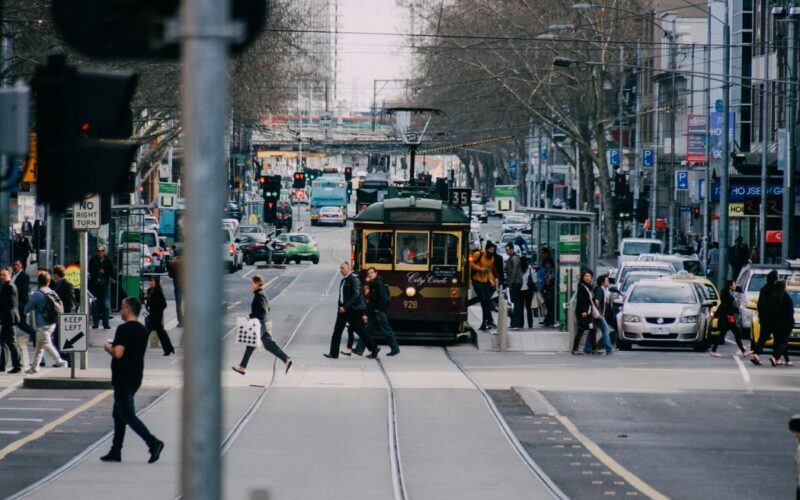The Covid pandemic as a force for change in Australian society and governance
September 2, 2021
The pandemic can teach us how to have a more economically and culturally equitable community.
What we need to do in a world coming out of the pandemic is: realise the power of community; take strong action on climate change; end military adventurism; restore intergenerational justice and combat selfish individualism.
A state of uncertainty might be characterised as a lack of normalcy, though normalcy will differ for different groups of people. What normalcy provides is a sense of predictability that the future can be understood within a certain framework of stability. A new normalcy is usually only recognised in retrospect and is not something that can easily be imposed except by a system of extreme authoritarianism and, even then, the vagaries of history cannot easily be denied.
Now that this epidemic has been ongoing for more than 18 months and any possibility that it might be definitively finished has been smashed by the ongoing crises in NSW and Victoria. What has been produced by this virus and the variety of responses to it is a lack of certainty and predictability for the future, in a world where people yearn so much for both, even where underneath it all they know there is always a lack of certainty. Normalcy is an adjective that has been consistently used in the media to describe a state to which most people would like to return. What this normalcy might be, and if it has ever existed, is less discussed.
The federal and NSW governments response to the epidemic has been class based. Big business interests have been accorded more support than small business, not to forget people with insecure employment or who must work several jobs just to survive. More blatantly the economically depressed area of south-west Sydney was locked down well before the more monied eastern and northern suburbs, even though the virus had also penetrated there.
For the general population and the mass media the Covid crisis has been all consuming, and even if the Afghan situation is also receiving much airplay in the media, this will progressively diminish. Other areas deserving of coverage especially climate change, the increasing diminution of real wages, unsustainable increases in house prices, the intense pressure being placed on the health system are being underplayed, if not completely neglected.
In the future historians will conceptualise this period of the Covid pandemic as a transitional time. It marks the failing of neoliberalism as a functioning economic/cultural system and the political/cultural responses arising from the realization by the general public that neoliberal government policies have not delivered the promised gains pushed so hard by the various propaganda industries.
The responses to the socio-economic strictures associated with Covid and the underlying failure of neoliberalism to produce general prosperity are being manifested in the rising of extreme right groups. This has been somewhat ameliorated by a greater use of digital technology to sustain community links whilst people are in isolation.
What would a more community-based and medium-term response, one emphasising economic and cultural equity look like if it could be prosecuted as one lesson to be learnt from a world coming out of the epidemic.
First would be a recognition by all people in positions of power that the community (ies) as a whole is as important in an aspirational sense as the individual and specific empowered individual groups. Relatedly would be the recognition that playing up historical, cultural and ideological divisions is wholly destructive to the kind of cooperation and consent that large scale societies in the plural always need. An important component of this would be the development of a universal basic income as a means of lessening the stress for many who are in transient work or who cannot work for a variety of reasons. It would help create a more cohesive society in which more people would feel they are playing an active role, rather than being stigmatised for their insecure status.
Second would be a much stronger response to climate change. This would require bringing the whole society into line with a series of realistic moves to bring us to zero emissions by 2030. Such a move would further consolidate the community over the individual as it would cease the kind of divisive differences between the deniers and those who want something done so as to transition to an environment that is sustainable for all who live on the Earth.
Third would be a commitment to interact with other countries using diplomacy rather than scapegoating and military adventurism, the disastrous effects of which are fully evident now. This would require a realistic foreign aid budget, designed especially for those underdeveloped countries which are going to suffer severely from the effects of climate change. And if it was undertaken hand-in-hand with a substantially reduced expenditure on military equipment and arms, the monies saved could be allocated to rectifying the principal areas of economic inequity.
Fourth would be a recognition of the fundamental importance of intergenerational justice. This means, above all, a transfer of wealth away from the wealthy-baby boomer 10% to the younger generations now facing crippling house prices and a highly uncertain future because of the concentration of wealth and the lack of predictable direction that will be the outcome of climate change. From the wealth perspective the abolition of negative gearing and the imposition of proper capital gains tax on wealth would go some way to helping the next generations.
Fifthly there is the political sphere itself. It would be hoped, naively no doubt, that politicians will repudiate the stubborn individualism and factionalism that has so characterised the Australian political scheme for the past 40 years. This would also involve politics ceasing to be a career pathwhere the career progression is political adviser, a member in a safe seat, retirement into a consultancy position. It would also require some kind of agreement across party lines of the kind of policies that will benefit the community at large, not just a group of loud sectional interests with the deepest pockets.
The changes suggested here, though highly desirable, will be very difficult to achieve because they require a persistent change in both individual and community consciousness. They also require pressure to be placed on substantially unresponsive politicians. But a greater problem arises if it is considered that all of the conditions which have produced such a biting need for change are those most resistant of change. I fear that despite the transitional status of the time period impacted by the Covid epidemic positive change will be forestalled.

